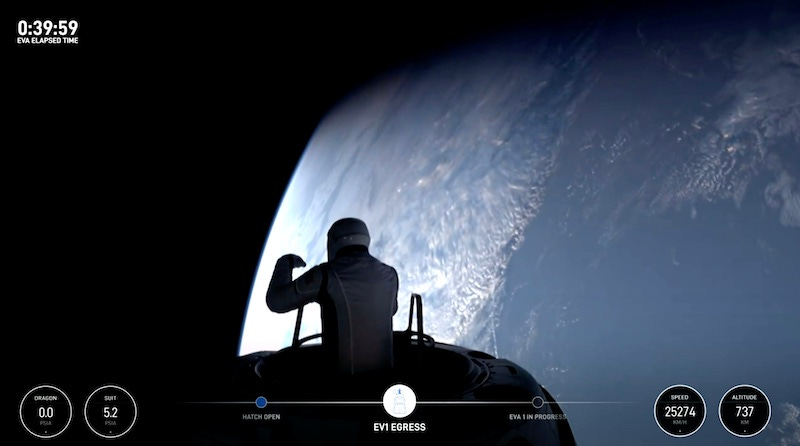Polaris Dawn Crew Completes First Spacewalk by Private Citizens
Recapping the Week in Space Commerce Ending September 14
The term "History Making Event" is thrown around a lot, and most of them will be footnotes at best. But Thursday morning, two private citizens truly made history by conducting the first spacewalks by non-government astronauts.
Polaris Dawn Commander Jared Isaacman and Mission Specialist Sarah Gillis each exited the vehicle, completed a series of tests de…




